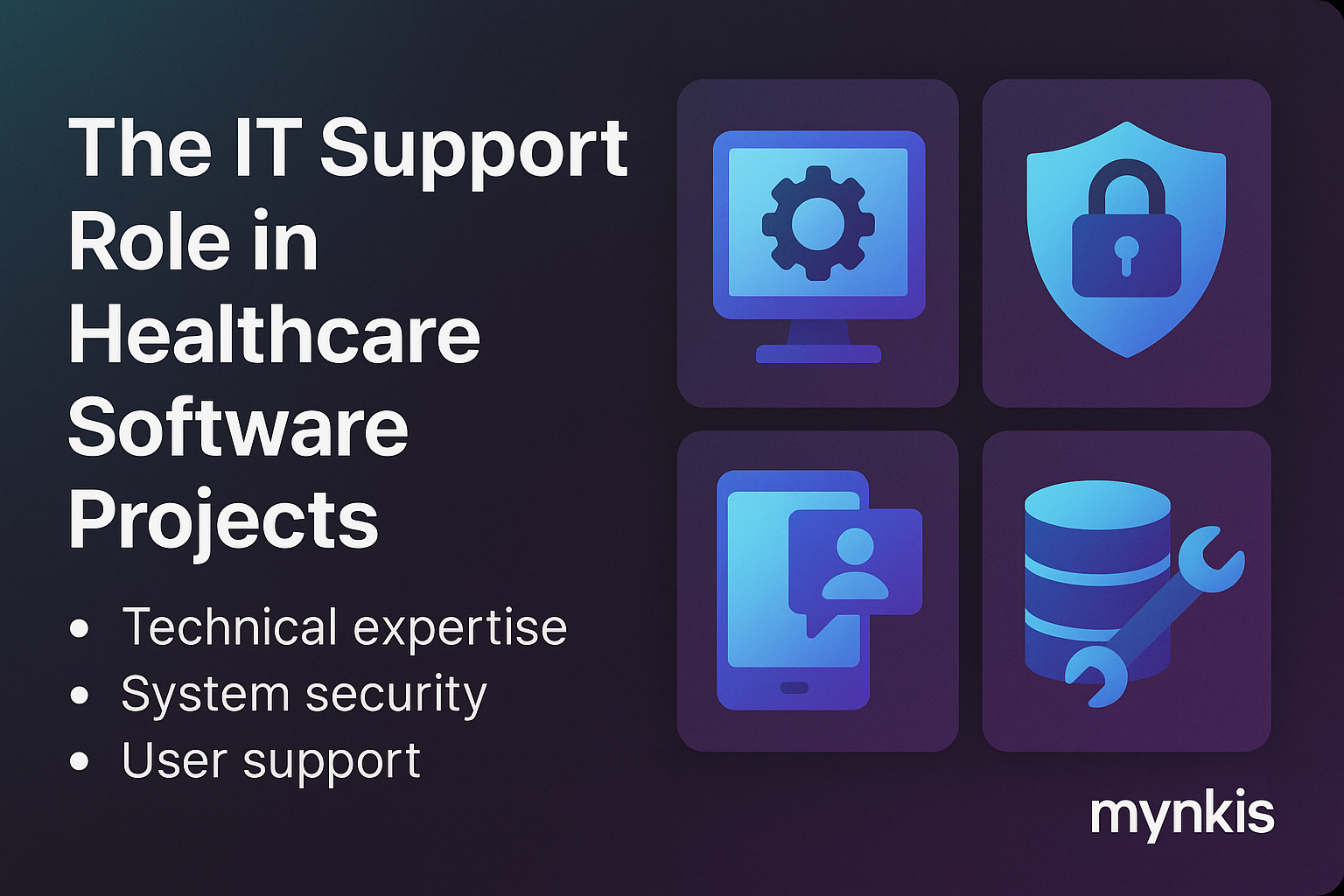Schedule a Demo
In my experience with healthcare IT systems, the collaboration between software development teams and IT support is critical, especially when dealing with sensitive patient data. Ensuring a seamless integration of new software into existing systems can be tricky. However, with robust IT support, challenges become opportunities to streamline operations and enhance patient care.
When embarking on a custom software development project for healthcare, IT support should be involved right from the planning stage. I’ve seen projects where IT support was only called in after development began, leading to inevitable delays and costly reworks. In contrast, early involvement can mitigate risks related to compatibility issues, security concerns, and compliance with healthcare regulations like HIPAA. IT teams bring their insights to facilitate a design that integrates well with existing infrastructures, ensuring both the initial rollout and ongoing support go smoothly.
In the realm of healthcare, data security isn’t just a priority; it’s a necessity. IT support plays an indispensable role here, safeguarding patient information through implementation of secure access protocols, regular security audits, and maintaining compliance with standards like HIPAA and GDPR. In my work, I’ve often highlighted to clients that without adequate IT support, even the most sophisticated patient portal can become vulnerable to breaches, jeopardizing both the patient's data and the institution’s reputation.
Healthcare software needs to be not only secure and compliant but also capable of scaling as per the needs of the clinic or hospital. Performance optimization is another area where IT support contributes significantly. They assess the load the new system can handle, optimizing databases and application servers to deal with daily operations and peak loads like an unexpected influx of patient check-ins. This preventive approach helps avoid downtime during critical moments.
Deploying a new system isn’t just about technical integration. It's also about the people using the software. IT support teams are instrumental in training staff to use the new system effectively. This training goes beyond a one-time event; it's about ongoing support and updates to keep the workflow smooth. In clinics I've worked with, dedicated support lines or help desks established by IT ensures any issues are resolved promptly without disrupting patient services.
Despite the best planning, issues can still arise with software systems. That’s where IT support comes into its own with rapid troubleshooting capabilities. Effective IT support has saved countless situations for me and my clients by quickly diagnosing and fixing software problems, minimizing downtime and keeping systems running smoothly.
The landscape of custom software development in healthcare is continually evolving, and so is the role of IT support. From developing and integrating enterprise web solutions to managing mobile apps and wearable tech integration, IT support now navigates a more complex and interconnected tech ecosystem. This shift means that IT support needs to be as dynamic and adaptive as the technologies they are overseeing.
A successful healthcare software project hinges on collaboration between all stakeholders. I find that regular meetings between developers, IT support, and healthcare management ensure alignment with clinical needs. Such a cooperative approach fosters an environment where feedback is continuously incorporated, refining the software and making sure it meets its intended purpose effectively.
In my experience, IT support plays a pivotal role in preparing healthcare systems for future developments. Whether it’s adapting to new regulations, integrating the latest health technologies, or preparing for increased data storage needs due to electronic health records (EHRs), IT support teams plan these integrations. This forward-thinking approach ensures that as healthcare evolves, so does the infrastructure supporting it.
Every healthcare project brings its unique challenges, and the difference IT support makes can often be tangible. At a local clinic last year, implementing a new patient scheduling software went almost seamlessly thanks to proactive IT involvement. Meanwhile, another hospital’s emergency department software integration faced several setbacks primarily due to poor IT support planning but eventually worked out with corrective measures. Based on available research, these outcomes may vary, but the lesson remains – plan for comprehensive IT support from the onset.
The effectiveness of healthcare software projects, and subsequently patient care, heavily relies on the quality and proactive nature of IT support. Cutting corners or underestimating the role IT support plays can lead to increased project complexity, security risks, and user dissatisfaction. Investing in robust IT support ensures the foundation of any healthcare software solution is solid, capable, and adaptable to future health tech trends.
Recognizing the integral role of IT support early in your healthcare software development project, from designing to deployment and long-term maintenance, won't just fulfill regulatory requirements or technical needs. It will elevate the quality of care provided to each patient, leveraging the power of technology for better health outcomes.
